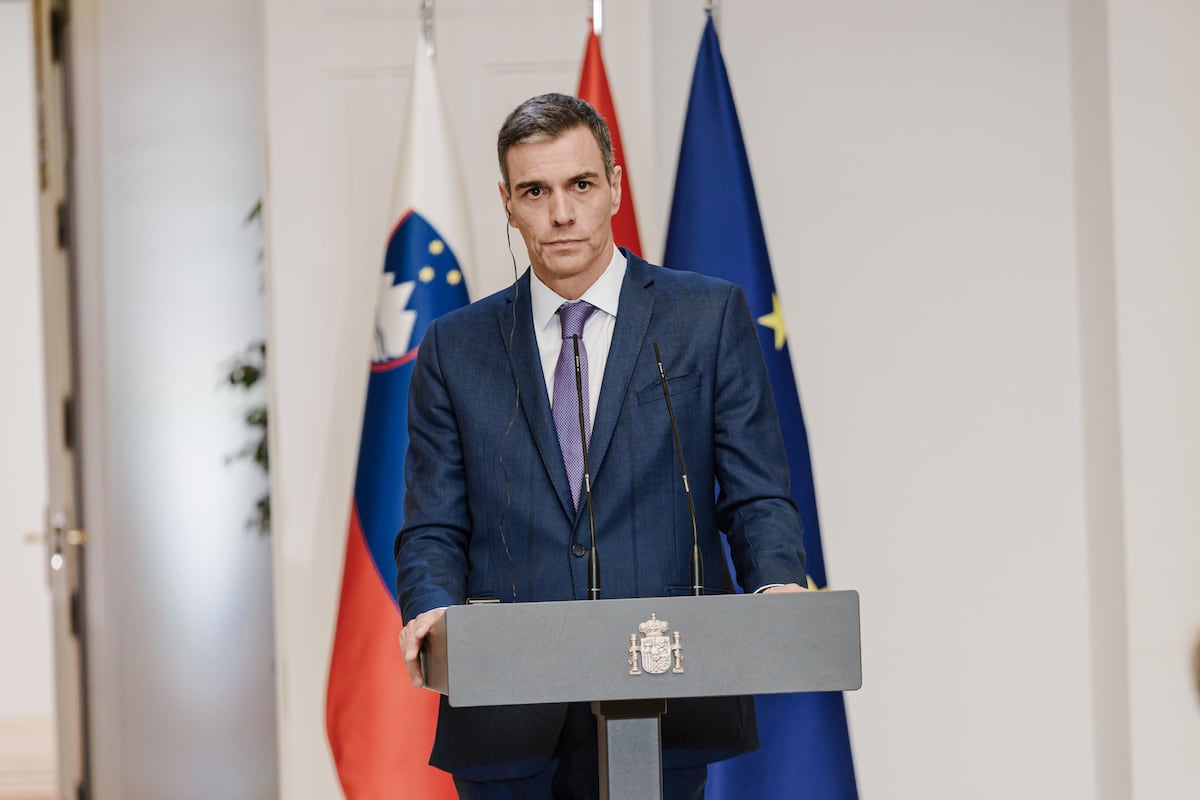We are looking for an independent senior editor
Political Turmoil in Spain: Allegations of Mafia Campaigns and Strategic Silence
The current political climate in Spain is reminiscent of a cinematic mafia saga, as both sides of the parliamentary aisle are embroiled in accusations of mafioso tactics. The opposition parties, PP and Vox, have accused the government of operating like a criminal organization. In response, the government, led by Pedro Sánchez, has countered by accusing its detractors of orchestrating a "mafia-like campaign" against it. This campaign, according to Óscar López, a close ally of Sánchez, is characterized by daily leaks, half-truths, insinuations, and unfounded rumors.
The government has suggested that certain wealthy businessmen with significant legal troubles are behind the recent spate of negative publications. However, there is a lack of clear explanations regarding the involvement of Leire Díez, a socialist activist with past responsibilities in public enterprises under Sánchez's administration. Some government insiders speculate that Díez might have been seeking information on alleged corruption within the UCO (Central Operational Unit) to aid the PSOE, but no evidence supports such claims, as no preferential treatment or incriminating data has surfaced.
Despite these heavy accusations, the PSOE has opted for silence, drawing criticism for its minimal transparency and delayed decision-making. López encapsulated a widespread sentiment within the government: the administration plans to continue until 2027, weathering this storm as no actionable legal claims have been presented against Sánchez or any government officials. In a pointed remark, López invoked Dante Alighieri's "Divine Comedy," suggesting that critics should "abandon all hope" of finding legal grounds to challenge the administration.
Meanwhile, Sánchez has chosen to maintain a façade of normalcy amidst the controversy. Even as Alberto Núñez Feijóo escalated the rhetoric by labeling Sánchez a "mafia boss" on social media, and his spokesperson described the government as a "criminal organization," Sánchez refrained from engaging in this war of words. Instead, he focused on international issues, such as the situation in Gaza, during a press conference with Slovenian Prime Minister Robert Golob, where media questions were notably absent.
In La Moncloa, the decision to sidestep the controversy is seen as a prudent move, given Feijóo's inflammatory language. Sánchez's advisors believe that engaging in such mudslinging would be unwise. They interpret Feijóo's aggressive stance as a strategic maneuver to galvanize the right-wing base ahead of an upcoming party congress, particularly in light of Vox's growing influence. This strategy includes mobilizing supporters in emblematic locations like Plaza de Colón, a site of symbolic importance to both PP and Vox.
The government's response to this political offensive has been to persist with its agenda, focusing on issues like social housing and other progressive initiatives, despite media distractions. Nonetheless, there is concern within the government regarding the PSOE's sluggish reaction to these developments, particularly since the opposition claims Díez acted under socialist directives, an allegation firmly denied by PSOE figurehead Santos Cerdán, albeit without much elaboration. While an internal investigation into Díez's actions has been initiated, many coalition partners view this as insufficient, including Second Vice President Yolanda Díaz, who has called for more decisive action, labeling the allegations as potentially "very serious" if proven true.















LEAVE A COMMENT